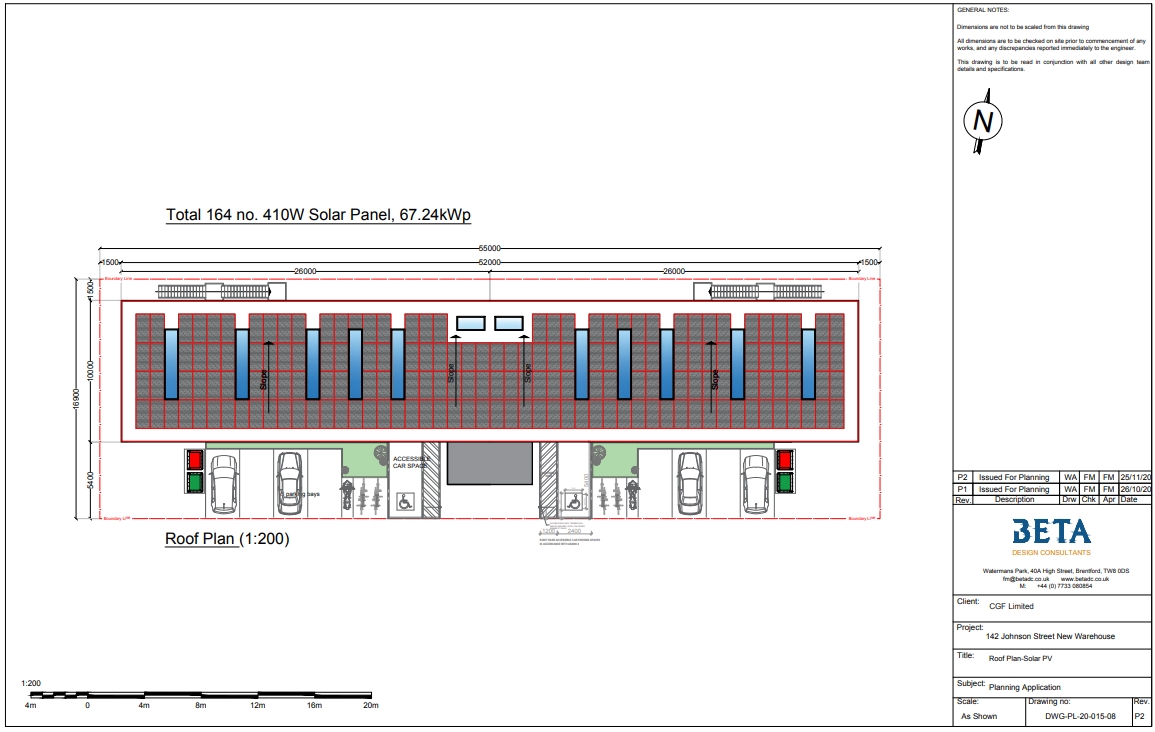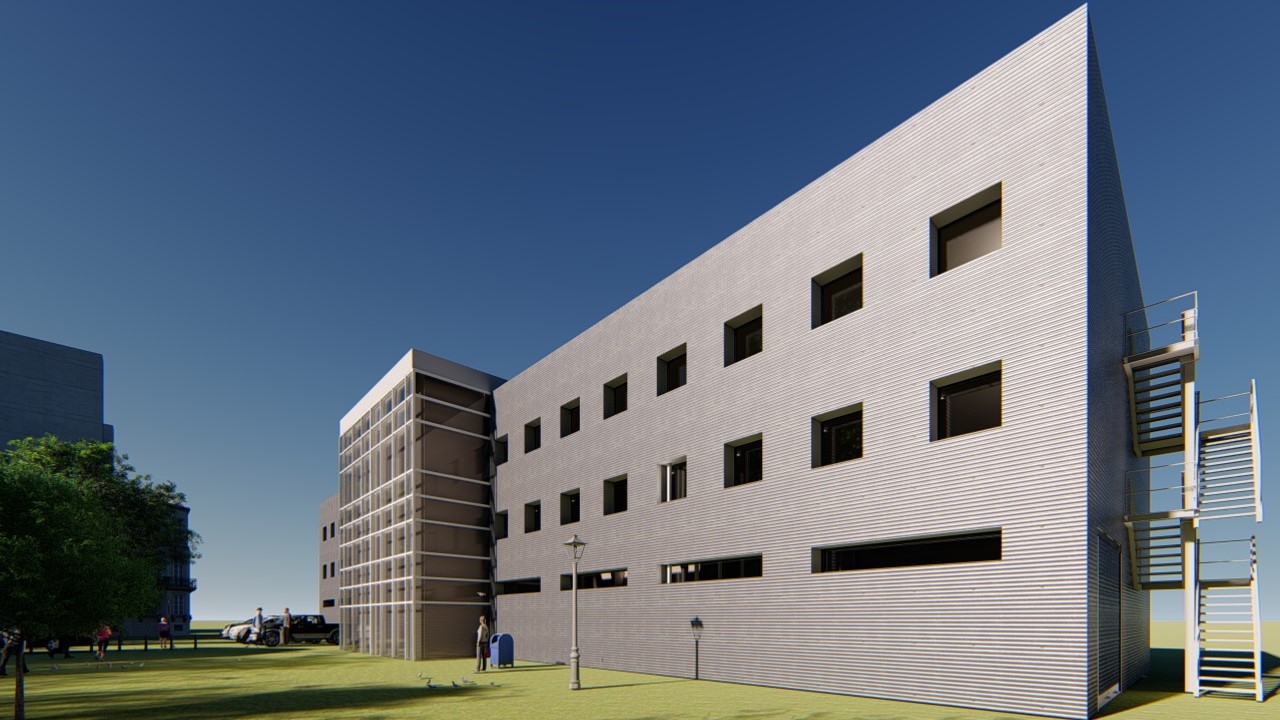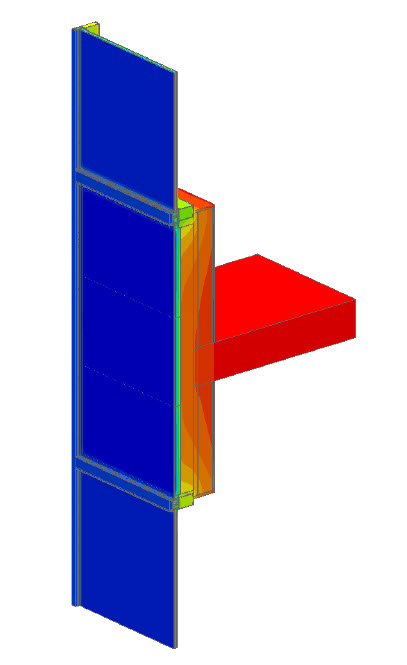Beta Design Consultants play a crucial role in the preparation of an energy strategy for a new development. Our expertise and knowledge in energy systems and sustainability can guide the development team in making informed decisions and implementing effective energy solutions.
Below are some examples of how Beta Design Consultants can assist in the preparation of an energy strategy:
Energy Efficiency Assessment
Beta Design Consultants can conduct a thorough energy efficiency assessment of the new development or of an existing development undergoing a refurbishment programme or being retrofitted. We can analyse the building's design, materials (fabric), and systems to identify opportunities for energy savings. For example, we may recommend incorporating energy-efficient building envelopes (insultation, cladding, structure), utilizing high-performance HVAC systems, implementing efficient lighting solutions, and integrating smart building controls. By optimizing energy efficiency from the start, the development can significantly reduce its energy demand and operating costs as well as reducing its embodied and operational carbon footprint.
Renewable Energy Integration
Beta Design Consultants can evaluate the feasibility of integrating renewable energy systems into the new development. We can conduct site assessments to determine the potential for solar, wind, geothermal, or other renewable energy sources. Based on the assessment, we can recommend the installation of solar panels, wind turbines, or geothermal heat pumps, among other options. Beta Design Consultants can also assess the economic viability, regulatory requirements, and potential incentives for renewable energy implementation, helping the development achieve its sustainability goals. In Johnson Street Industrial Warehouse project, Beta Design Consultants team proposed a solar panels solution that resulted in offsetting all carbon footprint and achieved a net zero carbon footprint. The cost of solar panels investment was a fraction of what could have been a regulatory carbon offset fine applied by local authority if the scheme had not been a net zero carbon scheme.
Energy Modelling and Simulation
Using advanced energy modelling software, Beta Design Consultants can simulate and analyse the energy performance of the new development. We can create virtual models (digital twins) of the buildings and infrastructure, considering factors such as solar exposure, shading, insulation, and occupancy patterns. By simulating different scenarios and design alternatives, Beta Design Consultants can optimize the energy performance of the development, identify areas of improvement, and make data-driven decisions regarding energy systems and design choices. This can also be applied to existing developments. We are working with local authorities and their contractors who are undertaking retrofit programmes to integrate upgrades to the envelope (insulation and cladding) with repairs to the structure so an overall integrated refurbishment package can be implemented in reactive maintenance and repair frameworks. Our services consider issues such as heat loss, thermal bridges and practical measures that can be specified to deal with such challenges.
Grid Integration and Energy Management
Beta Design Consultants can assist in evaluating the integration of the new development with the local energy grid. We can analyse the capacity and stability of the grid, assess the potential for distributed energy resources, and explore options for grid interconnection. Beta Design Consultants can also provide recommendations for energy management systems that enable the monitoring, control, and optimization of energy use within the development. This may involve implementing smart grid technologies, demand response programs, and energy storage solutions to enhance grid resilience and maximize the use of renewable energy. This is particularly relevant when examining infrastructure and future demand for EV networks. Beta Design Consultants has put this to the test during the electrification of four bus depts in London as part of TFL/RATP electrification programme.
Life Cycle Cost Analysis
Beta Design Consultants can perform life cycle cost analysis (LCCA) to assess the long-term financial and technical implications of various energy strategies. We can evaluate the initial costs (embodied carbon), operational expenses (operational carbon), maintenance requirements, and potential savings associated with different energy systems and technologies. By comparing the life cycle costs of alternatives, Beta Design Consultants can help the development team make informed decisions that balance upfront investments with long-term economic benefits. Johnson Street industrial development is a very good example, where investments in LED lighting, smart HVAC controls, solar panels, resulted in long term savings in terms of costs and carbon footprint.
Sustainability Certifications and Standards
Many developments aim to achieve sustainability certifications or comply with specific energy and environmental standards. Beta Design Consultants provide guidance on meeting the requirements of certifications such as LEED (Leadership in Energy and Environmental Design) or BREEAM (Building Research Establishment Environmental Assessment Method). This applies both to new developments and existing ones during their retrofit and refurbishment. We are currently working with clients and asset owners on achieving certification in LEED AP BD+C for an existing building during its refurbishment. Beta Design Consultants can assist in the documentation, data collection, and implementation of sustainable practices necessary for achieving these certifications, ensuring the development meets recognized sustainability benchmarks.
If your project team would like to find out how Beta Design Consultants can bring specialized knowledge and expertise to the table, please get in touch. We assist in energy efficiency assessments, renewable energy integration, energy modelling and simulation, grid integration, life cycle cost analysis, and compliance with sustainability certifications. Our involvement in the preparation of an energy strategy for a new development can optimize energy performance, reduce environmental impact, and contribute to the development's long-term success.


